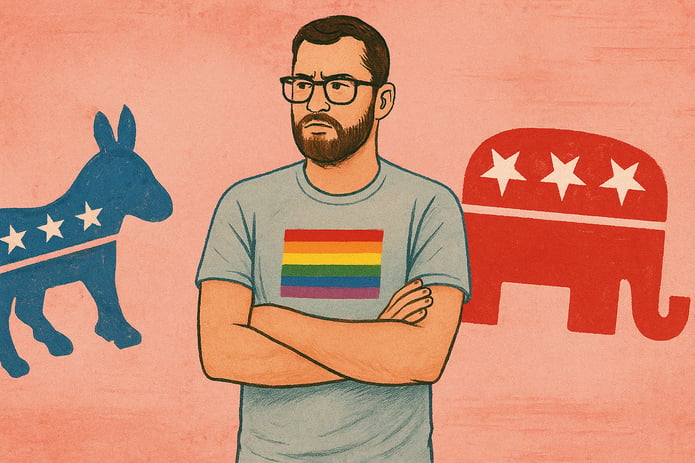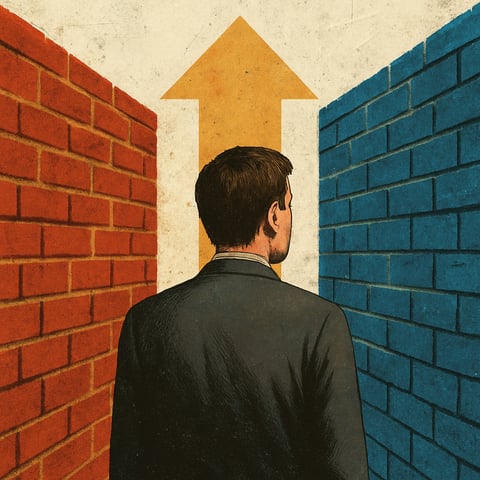Split Decisions
How many rabbit holes have you been down? How many have you thought about digging deeper into what we are told in the media, whether social media or regular news outlets, that we turn to discover what’s happening worldwide? If you were to decide on a political side to turn to - what side would you find yourself on?
SOCIOPOLITICAL


While considering the proposed questions, is it essential to find a side you identify with?
I continue to ask these questions of myself. While a registered Democrat, I have different points of view. I believe in individual rights while being a part of the LGBTQ Community. I believe in less government reach and control over our communities while wanting to see marginalized populations have better access to services instead of seeing so many suffering.
Years ago, I was scrolling through YouTube and came across a ten-part miniseries discussing the connections between current events and past occurrences. When comparing the history of the United States to world history, many revelations have been astonishing. I bring this up because, while speculation can overwhelm us with unanswered questions, discovering the truth later can either validate your suspicions or reveal actual events you initially found hard to believe. These facts are troubling. What’s even more disturbing is our complacency and complicity in being ignorant about what we perceive as fact or fiction. Finally, why should we care?


Education can be a place to explore subjects through research. What is being examined critically to challenge the status quo? Additionally, examining topics of interest is essential to highlight issues that should be nurtured in an academic setting rather than dismissed, as this understanding shapes the direction of our education system and the university's role. The failures of local government could be swiftly investigated and potentially improved through local universities, especially as our state feels like it is experiencing a continuous stream of failures at every level. This includes the absence of local culture in K-12 education, the struggles of Indigenous populations, local government departments that struggle to resolve issues such as voting, planning, and permitting, unemployment shortfalls in the Department of Labor, homelessness under the Department of Health and Human Services, and the ongoing failures of the Department of Corrections and Rehabilitation. So many issues exist at various levels. So why wouldn’t we leverage local universities to help tackle these shortcomings and failures?
At some point, we either stand for something or fall for anything. In the simplest statement I could type here - don’t just talk about it; step into why you won’t/don’t want to speak up and, in turn, be about it.
